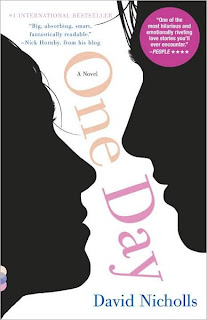 I've been thinking about this Annoyed Librarian column on young, "hip" (not a fan of this word) librarians and hiring practices. And as usual with the AL, I see her point but I don't quite agree.
I've been thinking about this Annoyed Librarian column on young, "hip" (not a fan of this word) librarians and hiring practices. And as usual with the AL, I see her point but I don't quite agree.(I do agree with her initial assertion that the idea that young librarians are taking over anything right at this particular economic moment is laughable. Several of us on this blog have eked out good library jobs, after a LOT of blood, sweat and tears, but I think we have a while before we're really in position for the true world domination we deserve.)
But I think it's naive to think that youthfulness and "hipness" (not a fan of that word) aren't factors in hiring decisions.
EVERYthing is a factor in hiring decisions.
Let's take this:
But my advice to her and all the other young hip librarians is to tone it down a bit if you want to get jobs and succeed as librarians. Really, no one cares if you’re young or hip, as should be obvious by the sorts of people libraries hire. Nobody even cares how you look...When you walk into the door of an interview room, being young (let's leave "hip" aside for the moment) means a lot. As an interviewee, you probably don't know what it means. In a library with lots of other young people, or one looking for fresh blood and new ideas, or one that wants to improve its social media profile -- being young could be in your favor. But it could work against you, seriously against you, in a place that is skeptical of our generation of librarians for any number of perceptions. Not knowing traditional skills like cataloging, not having a lot of experience, not understanding the way the library world works, "coming on too strong" with too many new and crazy ideas about changing the way things work... all of that could turn someone against young candidates before they even open their mouths.
Just being young and hip in itself means nothing. People respect you if you’re smart and do your job well. If you’re dumb or suck at your job, don’t blame tattoo-less, oldster librarians for disliking or firing you.
Here's another one:
Self-proclaimed hipsters are concerned with style, but most librarians are concerned with substance. Pretty much any style is fine as long as the substance is there, and if the substance isn’t there, no amount of style will help.Sure, everyone is concerned with substance, but it's really hard to convey and/or truly perceive substance during a first interview. I've been on both sides of the hiring process, and they both suck, and you have to really think hard about your own conceptions and biases. Hiring managers DO care how you look, because how you look gives clues to how you'd behave in the job. (And sometimes people in charge of creating a diverse workplace are specifically supposed to care about the color of your skin or your gender or your age, too.)
Also, self-proclaimed hipsters like the one quoted in the article? They want jobs too. They're thinking about how to market themselves and how to get themselves hired in the best place they can. I can be as annoyed at hipsters as anyone, but it makes no sense to argue that youth -- and maybe hipsterness, and maybe being tall or having glasses, and maybe having tattoos or not having tattoos -- has no impact at all on whether you get hired. Everything has an impact.
---
*Zaphod Beeblebrox, Hitchhiker's Guide to the Galaxy. Yes.




